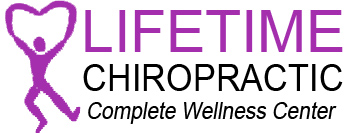
Kids love to play sports today just as they always have done, but these days the variety of sports on offer is huge. It is so easy to indulge their passion that, in the fun of it all, the importance of proper conditioning and healthy nutrition may be overlooked by parents and kids alike. Without these two elements, performance will not be as keen as it might be, and the chances of injury will be much higher.
In those more competitive of sports such as football, athletics and gymnastics, the training regimes imposed upon the kids can be something they are just not ready to handle unless their bodies are fully prepared, and they understand how to guard against the possibility of potentially serious physical damage.
Warming up, stretching, strength-training, cooling down, are all necessary for kids involved in sports, but even when they choose to follow the routines, they may not have sufficient learning to follow them properly. Thus it is not necessarily the sport itself that can be injurious; it may be the preparations that cause the damage. Improper stretching or weight-lifting techniques can be fairly ruinous to a still-developing teenager.
There needs to be appropriate and professional instruction given to young athletes in both general warm-up procedures, and in sport-specific warm-up. A slow jog is not sufficient preparation for a sport which may test body parts to their limits.
Eating proper nutrition and keeping well-hydrated are also crucial to support the rigors asked of the young athlete’s body. If 8 to 10 eight-ounce glasses of water each day is recommended for a non-sporting person, the requirements for an athlete are obviously greater considering how they are taxing their systems and sweating it out. A nutritious breakfast is very important, and during match or competition days the athlete should aim to eat a healthy meal around 2 to 4 hours before their physical exertion, and within 1 to 2 hours afterwards to properly refuel the body.
It is one of the traits of youth that kids feel nothing can hurt them, but this obviously isn’t true. By following the tips below, you can ensure your child is well-prepared for whatever their chosen sport throws at them.
Your child should endeavor to:
Wear the correct equipment
- This is obviously vital in certain contact sports, such as football and hockey, which can be dangerous.
- Make sure equipment fits well.
- Alert the trainer if equipment is damaged.
Eat healthily
- Young athletes should eat a well-balanced diet and avoid skipping meals.
- Candy bars, fast food and the like should be shunned.
- Provide healthy foods at home, such as fruit and veg rather than cookies and potato chips.
Keep to a healthy weight
- Dietary rules are imposed on participants of certain sports, without which optimum performance is unlikely.
- Be watchful of your child becoming too fanatical about this and ending up losing too much weight.
Drink plenty of water
- Hydration is vital to optimal fitness.
- Teenage athletes need at least 8 eight-ounce glasses of water a day.
- Younger athletes need 5 to 8 eight-ounce glasses.
Avoid soda
- Commercial sodas are massively responsible for poor health and obesity. Look at a good quality sports drink for young athletes who need a sustained source of replenishment.
Warm-up properly
- Before every event – competition or practice – the athlete should warm up. Talk to the coach if this isn’t happening.
- Jogging, jumping rope, lifting light weights are all good ways to avoid torn or ripped muscles.
Take vitamins daily
- Multi-vitamins may help a young athlete avoid a deficiency.
- B-complex vitamins and amino acids can help reduce pain after contact sports.
- Thiamine helps promote healing.
- Vitamin A is good for scar tissue.
Avoid gimmicky supplements
- Performance-enhancing supplements like creatine should be avoided in the under-18s.
Rest well
- Young athletes should get eight hours of sleep a night to avoid adversely affecting performance.
- Fatigue can appear as irritability and a loss of interest in the sport.
Chiropractic Care Can Help
Doctors of chiropractic are trained to provide treatment for the whole neuromusculoskeletal system, and are able to offer advice on appropriate training, nutrition and injury prevention.
For Your Health,
Dr. Patrick Chenoweth
